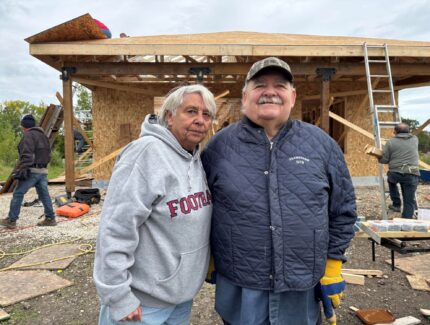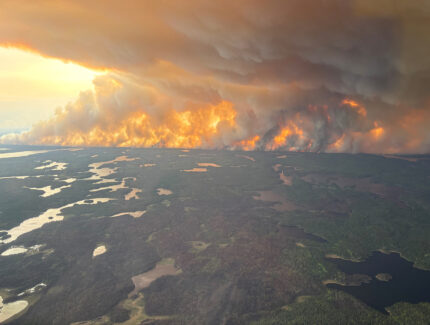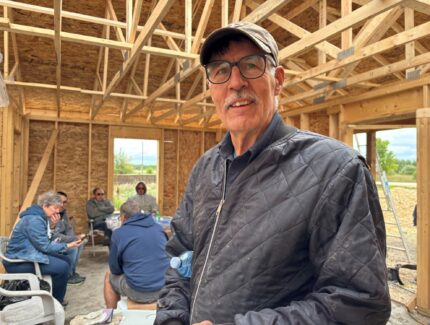
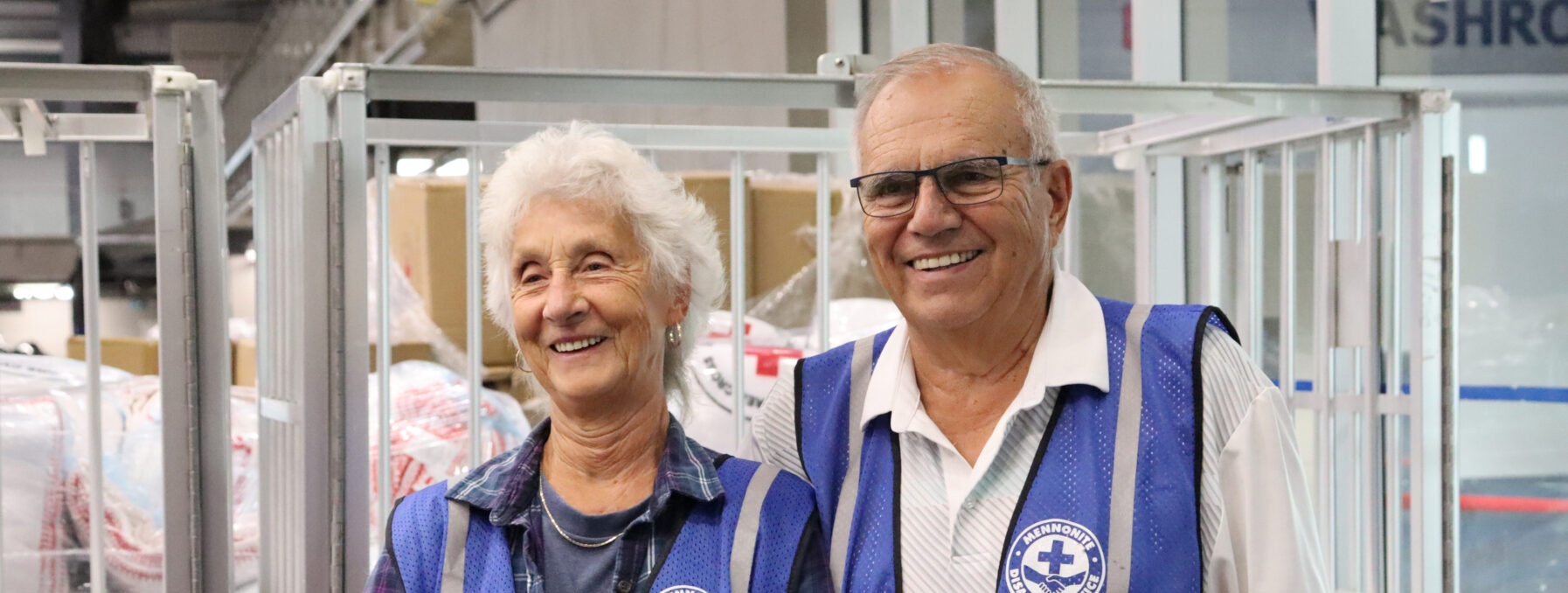
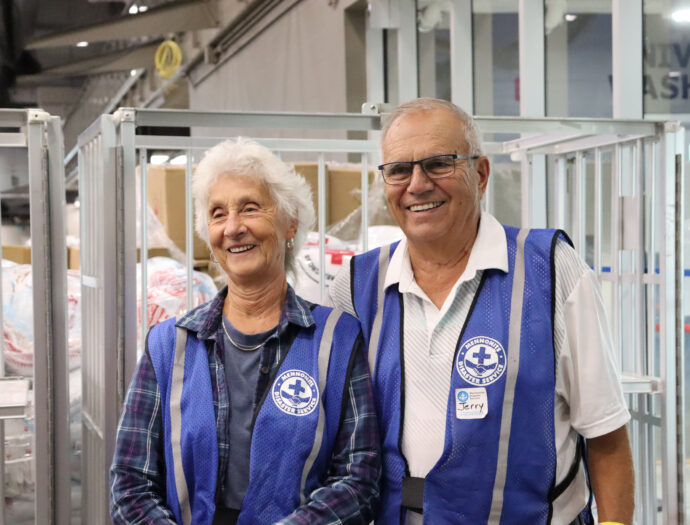
August 12, 2025
Pillars of faith, pillars in action
After their first assignment in 1991, Jerry and Doreen Klassen accumulated more than 1,500 days of voluntary service with Mennonite Disaster Service (MDS) over 14 years — simply by responding to a call when asked.
The whole experience… it was all watching God at work because I’m just an uneducated hillbilly from the country, and God was able to bless and use us. It’s been a highlight of our lives.
— Jerry Klassen
In 1990, Jerry had resigned from a pastoral position in northern British Columbia. “We were looking for some opportunity to serve,” he recalled. The couple contacted Mennonite Central Committee (MCC) to explore volunteer options and felt that MDS, then a program of MCC, “might be a good fit.”
Jerry had a background in construction and pastoring. “I did the whole gamut,” added Doreen. Their first assignment was a response to the Loma Prieta earthquake in Watsonville, California. Jerry remembers experiencing earthquake tremors there, which he imagined were just a taste of what residents had experienced two years earlier.
After two assignments in Loma Prieta, the couple served on MDS responses across the U.S. for a few months each winter. While Jerry typically filled the role of Project Director, Doreen served as Office Manager or Head Cook. They learned a lot through their hands-on experiences.
“You have everything from a few shingles missing to total houses gone. That’s the scope,” said Jerry. “Your disaster is the worst… It really is about the individual and how they respond to what’s going on in their lives.”
The four pillars in MDS
After Hurricane Katrina struck in 2005, MDS responded to widespread need with the unprecedented financial support of its donor community. Jerry accepted a newly created staff position as Disaster Response Coordinator in 2006, and Doreen offered administrative support as his assistant. The two were heavily involved in MDS’ Hurricane Katrina response. As Jerry gained experience in his new role and observed projects that worked and didn’t, he started to explore what made or broke an MDS project.
He identified four factors — meaningful work, funding, volunteers and volunteer accommodation — and shared his observations with Kevin King, MDS Executive Director. While they both claim the other coined the term, those factors came to be known as the four pillars in MDS and continue to inform the responses that MDS pursues today.
“The call”
Doreen served in her role as Disaster Response Assistant for four years, and Jerry continued until 2013. After their retirement, they volunteered on a few more MDS responses in 2016 and 2017. “We did it because we were called,” said Doreen.
This June, eight years later, the couple received another unexpected call. This time from Ross Penner, the Executive Director of MDS Canada. MDS had been asked to service a Canadian Red Cross evacuee reception centre in Winnipeg, Manitoba. The centre was set up for rural and northern Manitoba residents, who were forced to leave their communities due to wildfires. By mid-June 2025, more than 20,000 Manitobans had been evacuated from 27 communities. At the centre, MDS volunteers welcomed thousands of them, directing evacuees to sleeping accommodations, and distributing food and essential hygiene supplies round-the-clock.
“After a hectic first weekend, I knew I needed a site leader who could manage the chaos of hundreds of people coming and going. This wasn’t MDS’ typical construction work. This was people care,” said Penner.
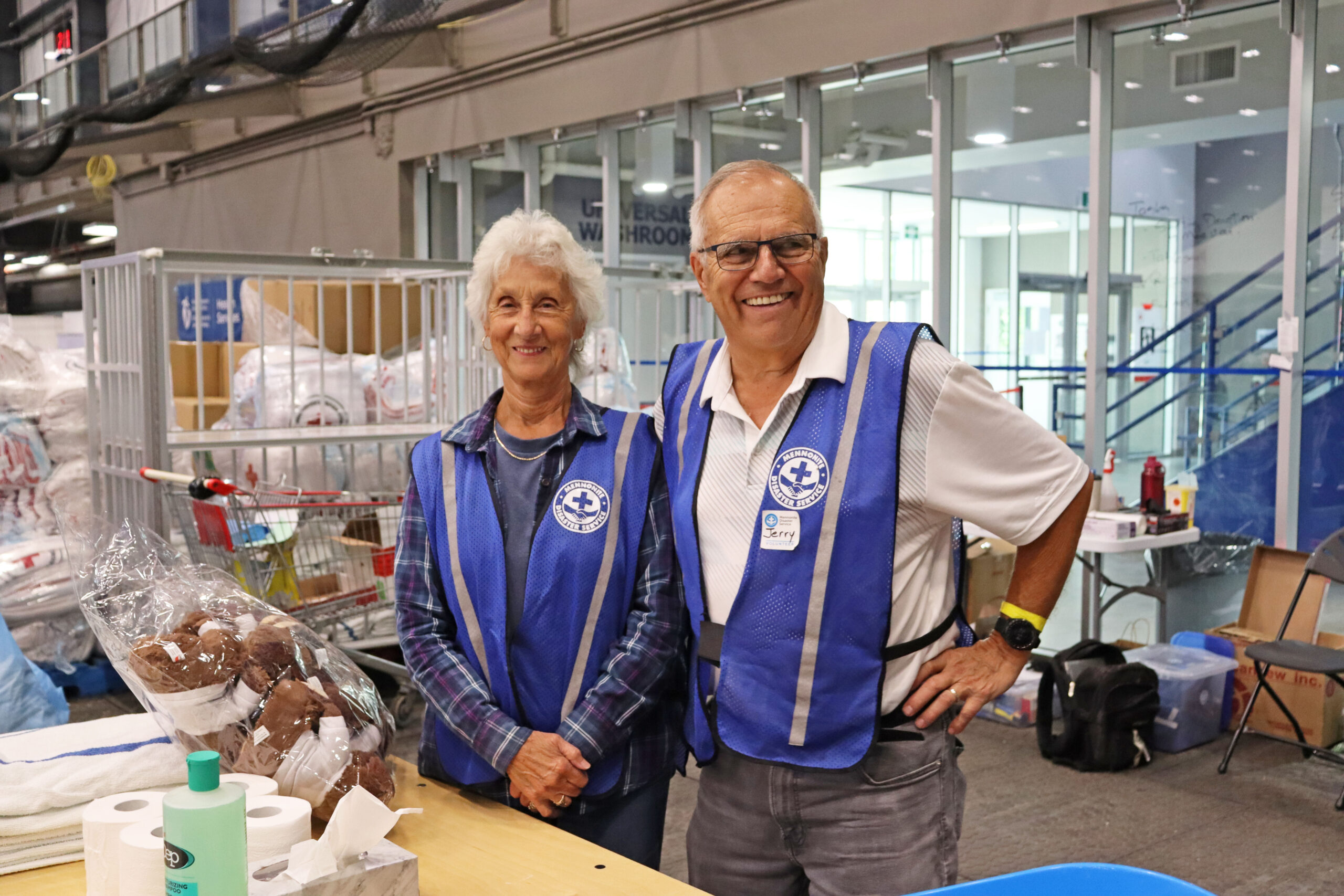
Doreen and Jerry Klassen volunteered as site leaders at a Winnipeg, Manitoba, based wildfire evacuee reception centre in June 2025. MDS photo/Nikki Hamm Gwala
Jerry and Doreen affirmed Penner’s invitation to lead MDS activities there. While the couple had never taken on an assignment like it before, Jerry shared, “It’s been rewarding to stand alongside [the evacuees].”
“We realize that they’ve been displaced, and they’re frustrated, and this isn’t home for them,” said Doreen, gesturing to hundreds of cots partitioned and set up in an indoor soccer complex. “[We] just take care of them as much as we can.”
After two intensive weeks on the site, Jerry and Doreen, 77 and 76 respectively, were ready to return home when the first round of wildfire evacuees were moved into private accommodations. “I think we’re getting a little too old for this,” joked Jerry.
Of more than 21 years of MDS service, he said, “The whole experience… it was all watching God at work because I’m just an uneducated hillbilly from the country, and God was able to bless and use us. It’s been a highlight of our lives.”
Nikki Hamm Gwala, MDS Canada Communications
With content from a 2024 interview of Jerry Klassen by Gloria Nussbaum

